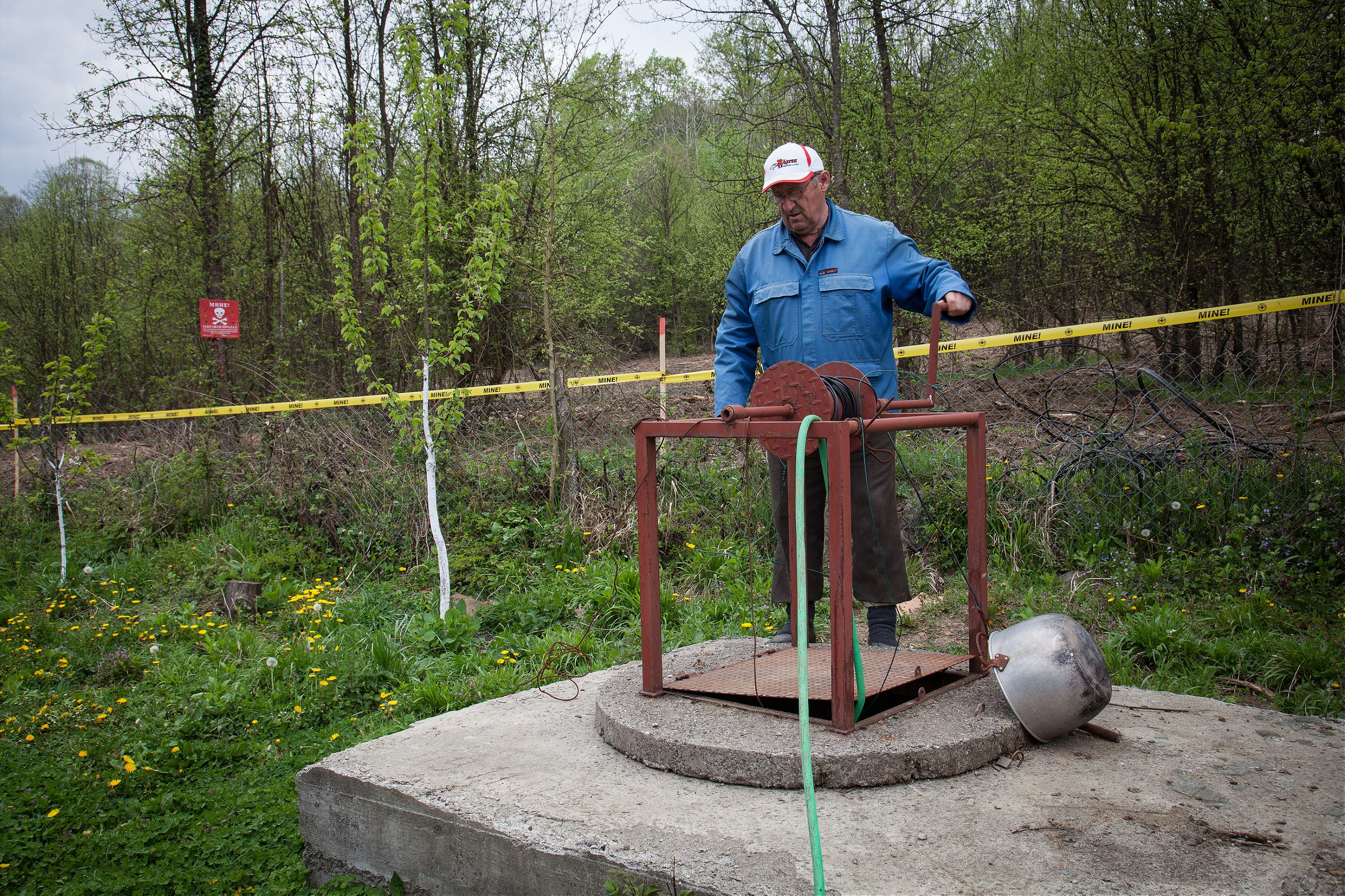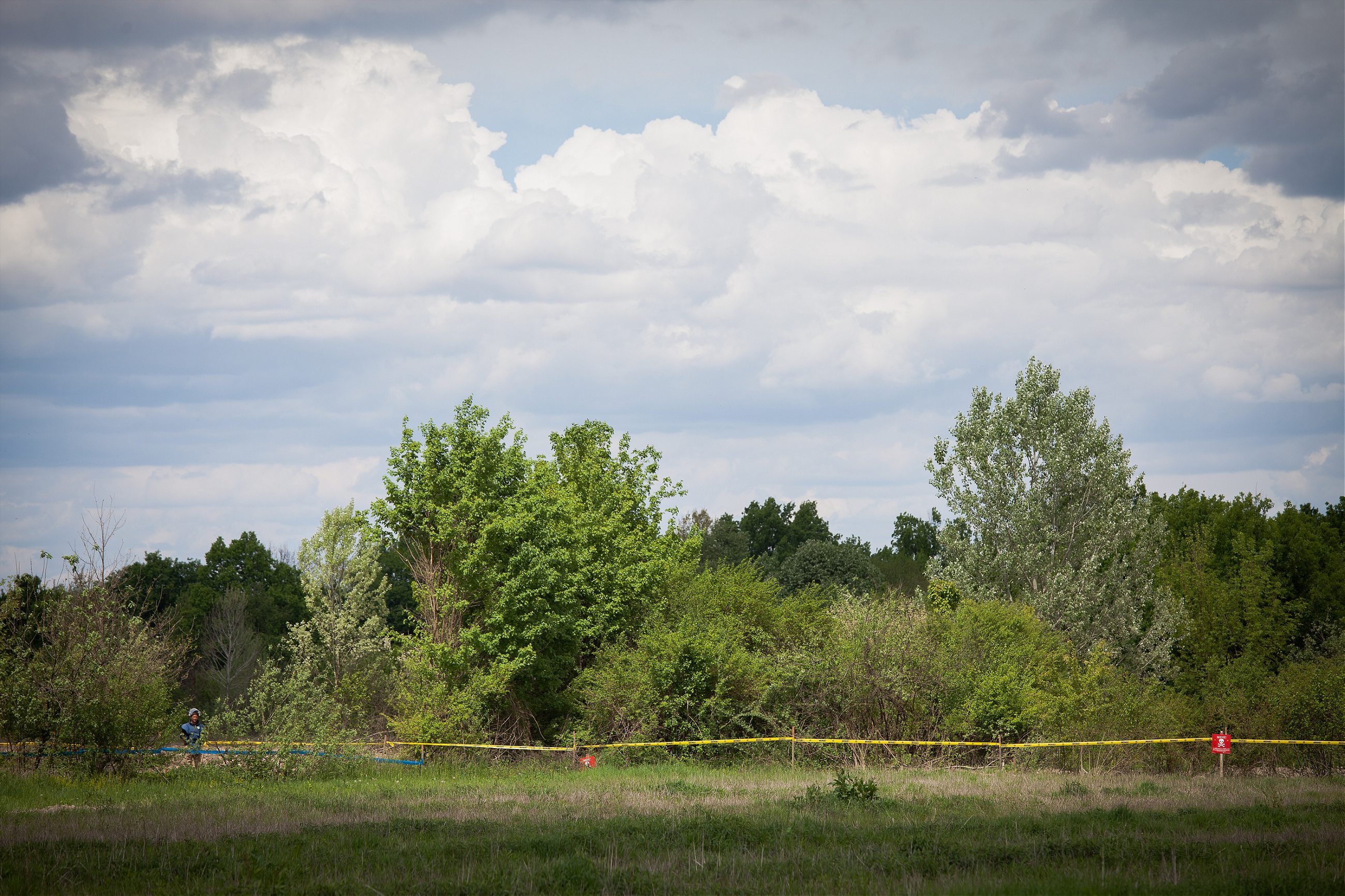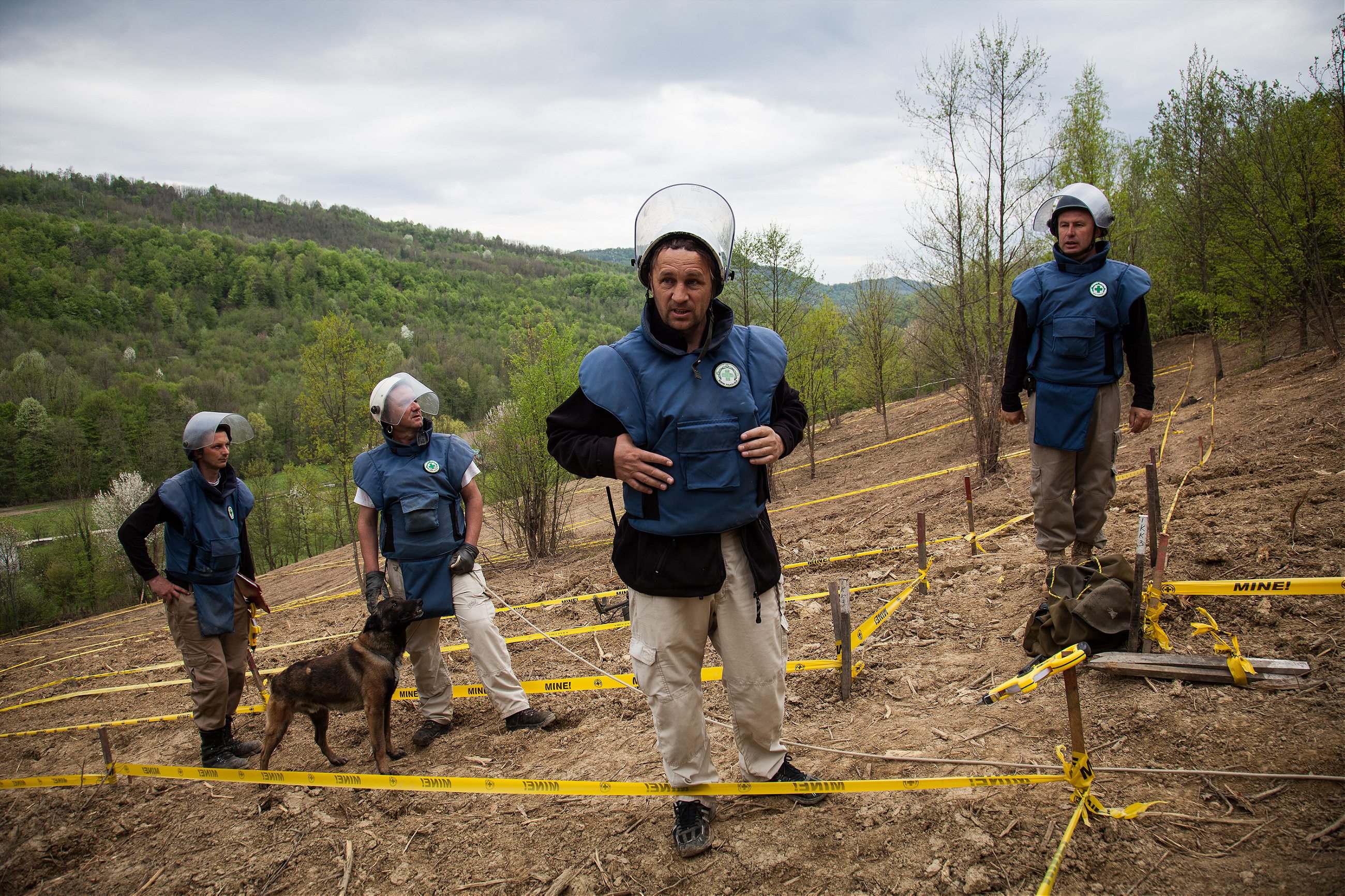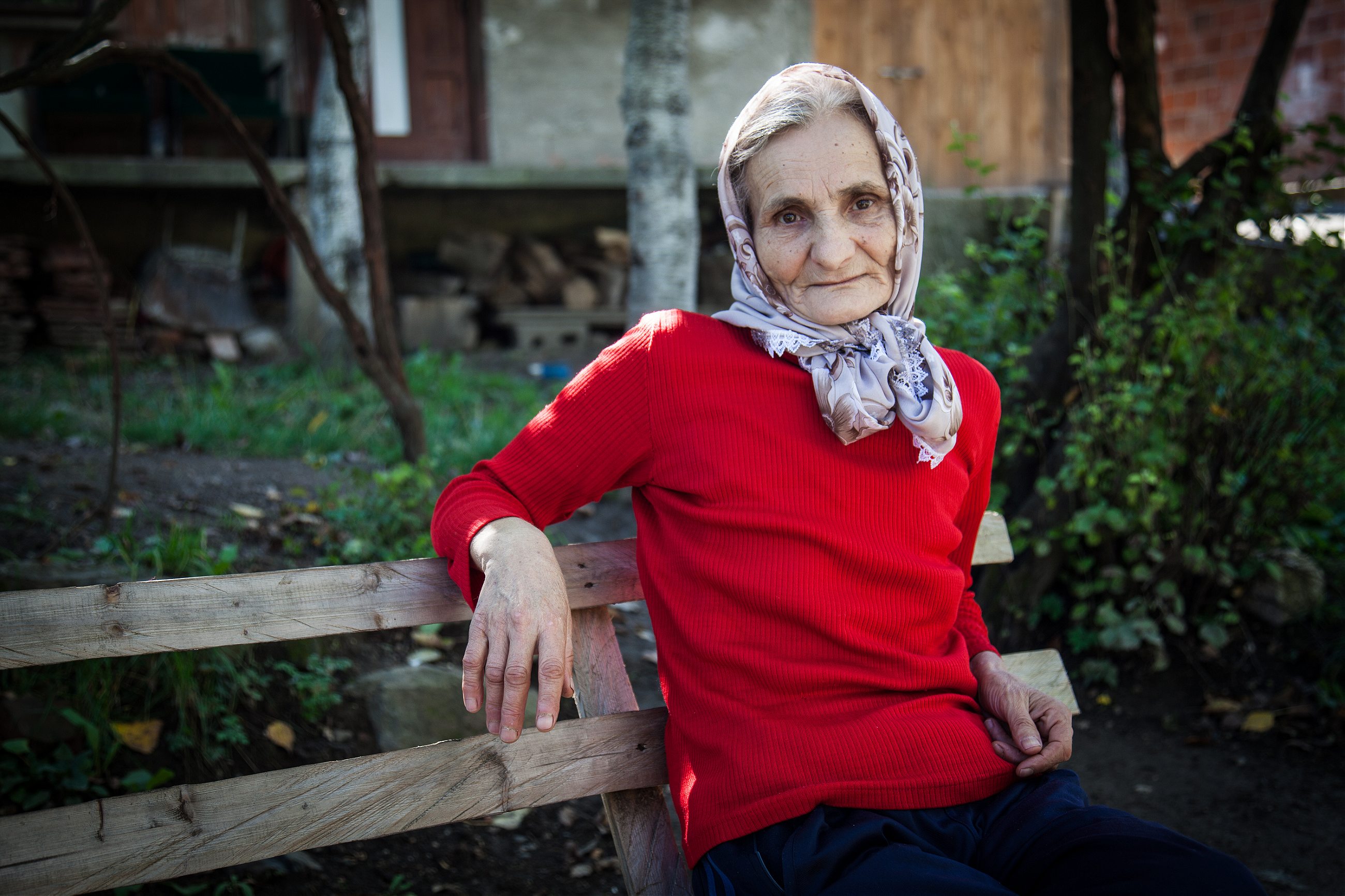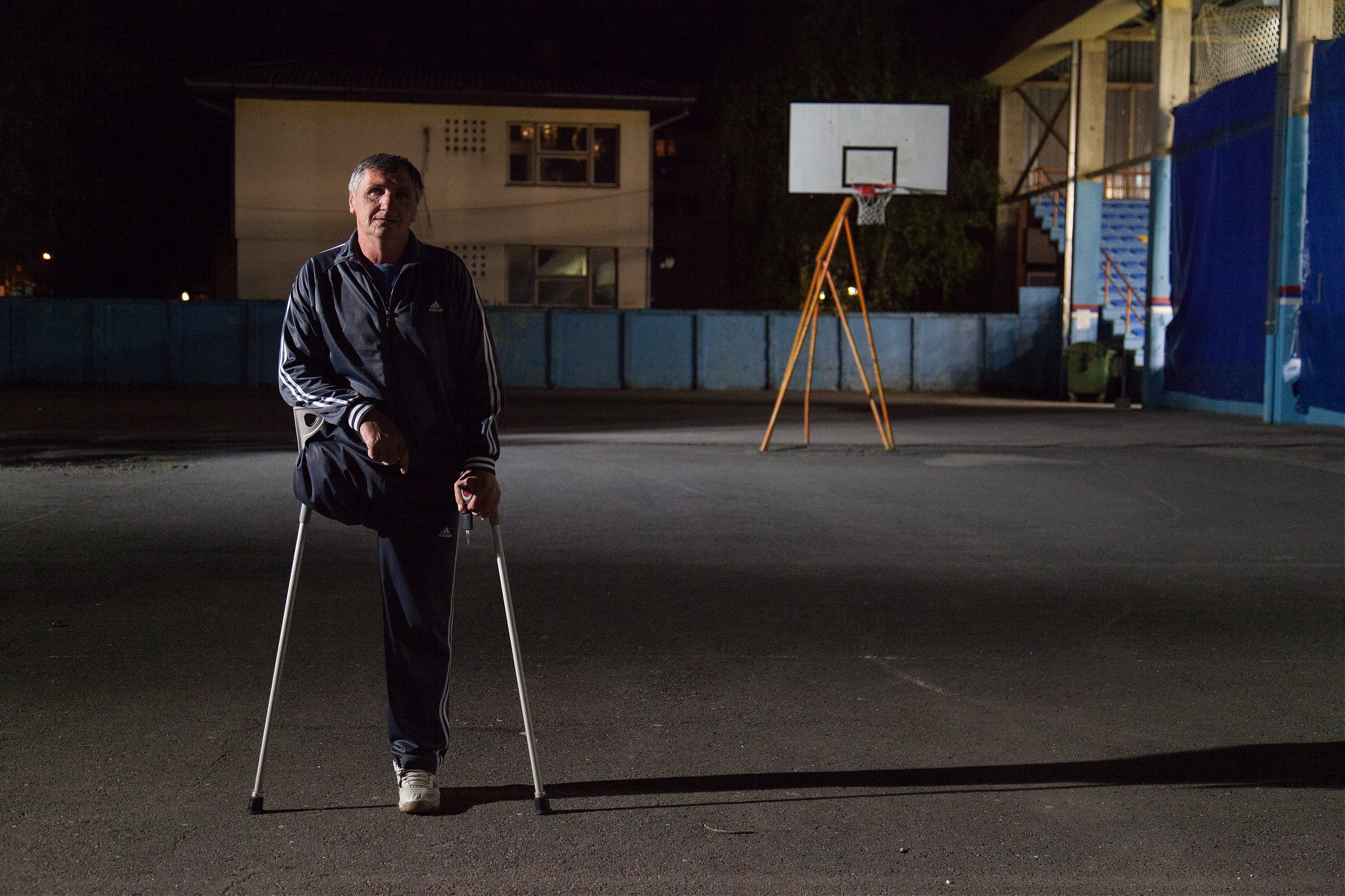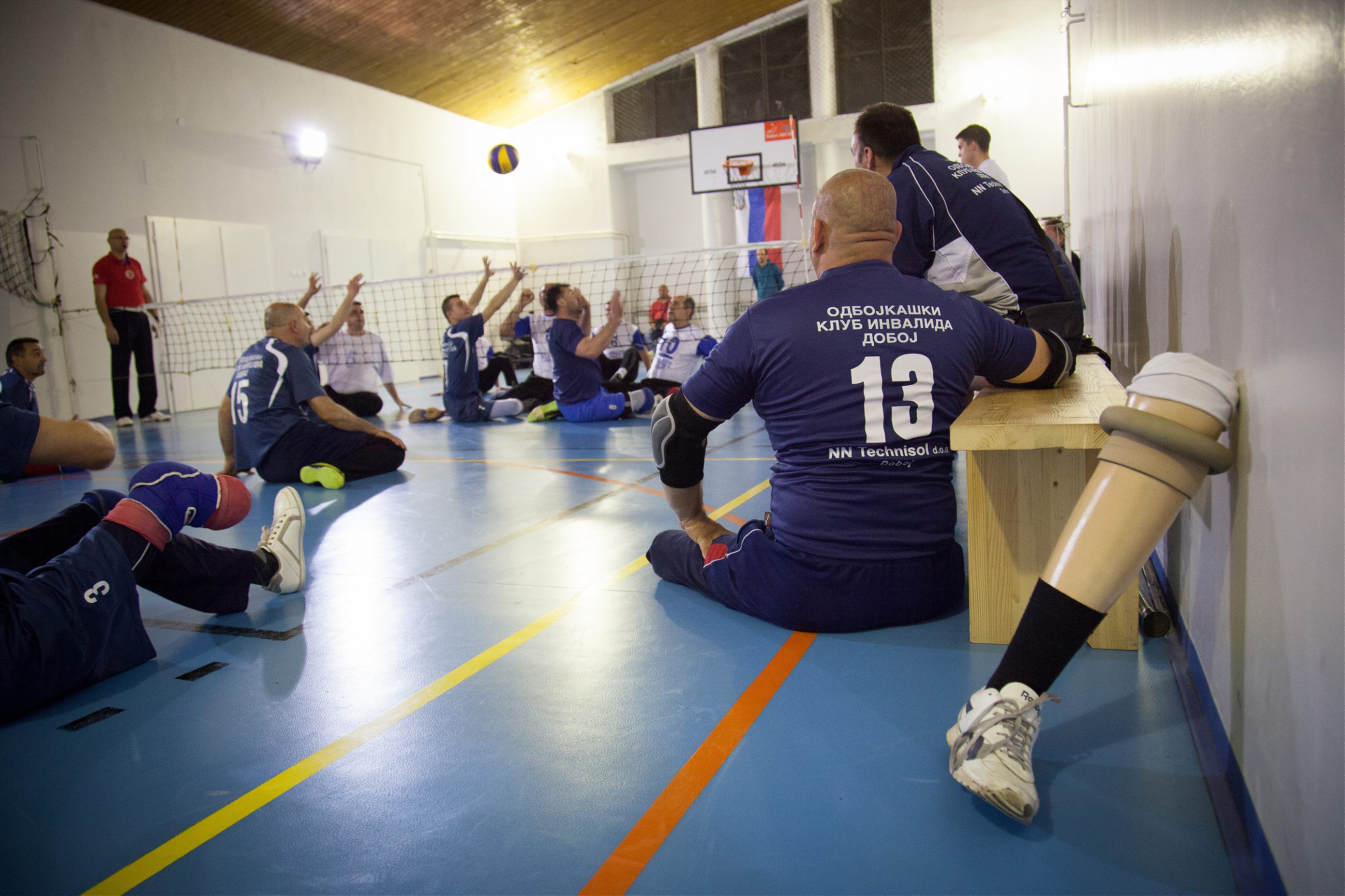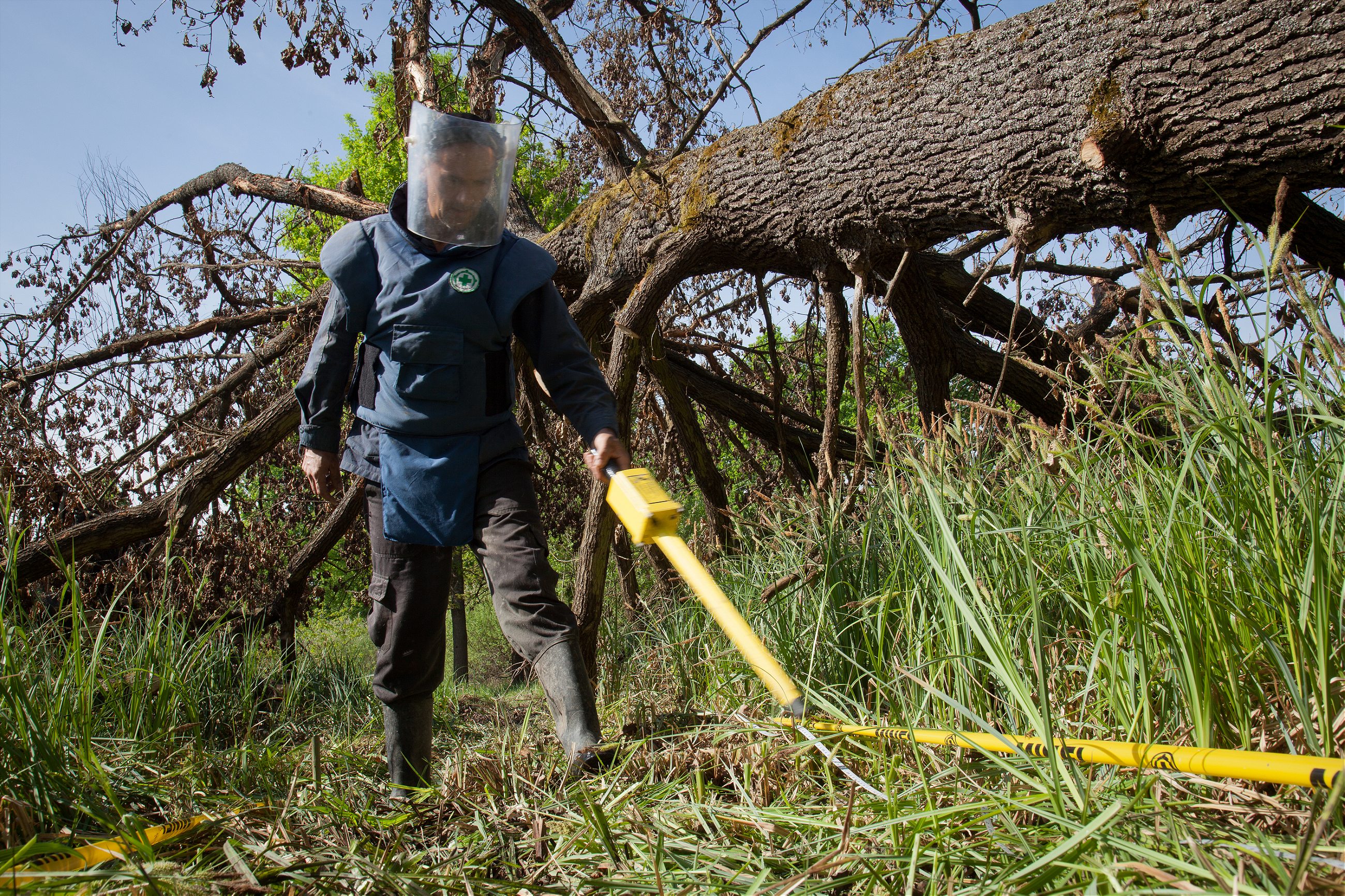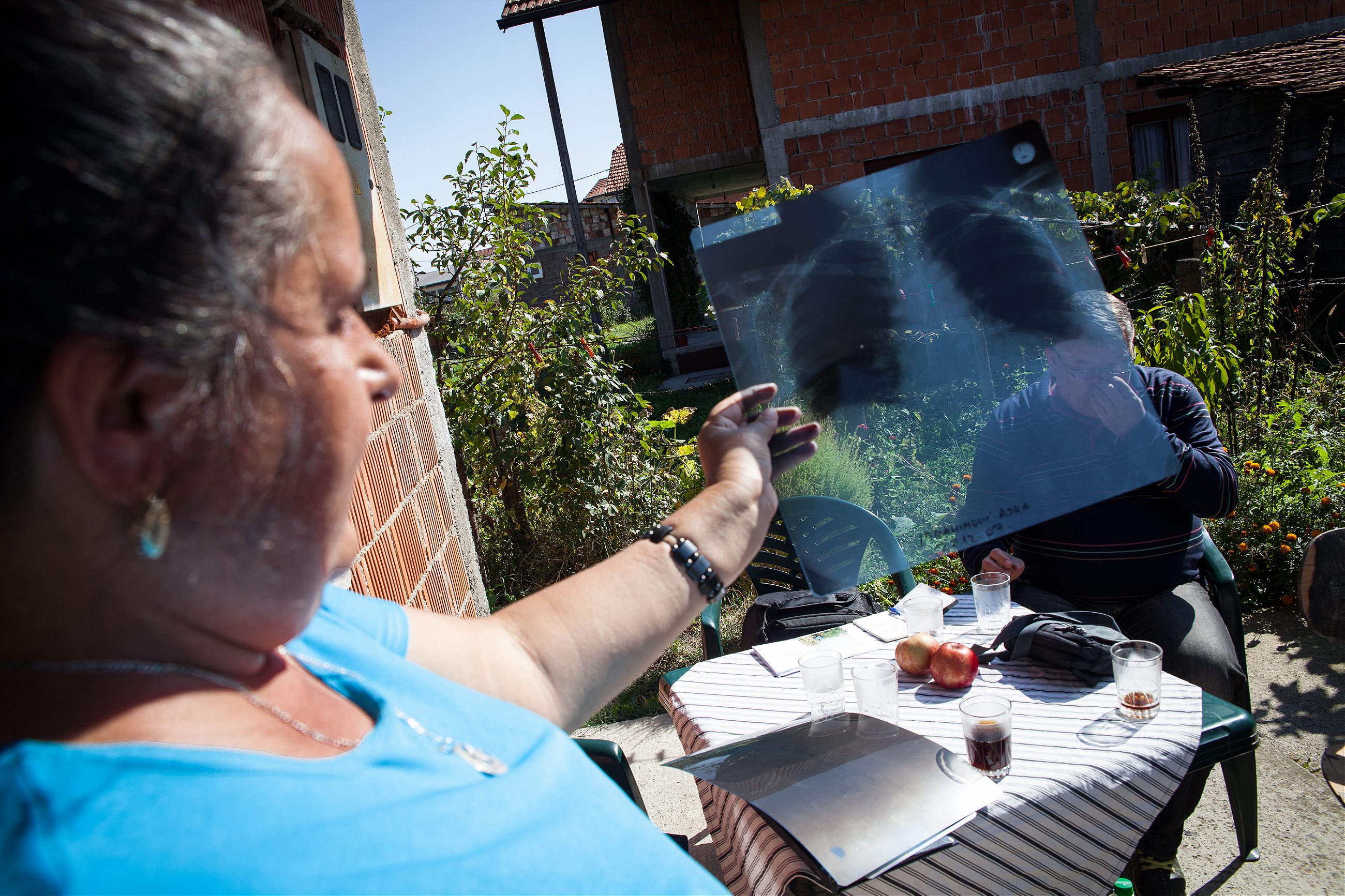Twenty years after the war ended, Bosnia and Herzegovina is still the most mine-ridden country in Europe.
A few months ago, 62-year-old Todor Jankovic was gathering wood when he accidentally activated a land mine. Designed to explode two feet above the ground, the device miraculously failed and fell at his feet. He still can’t believe his luck.
Jankovic and his wife have been living in Skipovac Donji, a small village in northeast Bosnia and Herzegovina, for nearly ten years. A few steps behind their house, red banners marked with white skulls designate mine-infested areas. Almost two decades after the end of the war, the country remains under the threat of more than 120,000 land mines buried in the ground along former front lines. A total of 1732 people have been involved in land mine accidents since the war’s end. Six hundred have died.
“My son Mato has grown up with mines,” says Jana Spionjak, who lives an hour’s drive north, in Grebnice. Here, children are taught to look out for mines when they go play near the woods. But no matter how cautious residents are, the risk is always present. Spionjak’s husband was killed instantly when he stepped on a mine last September. Mato, their 17-year-old son was seriously injured.
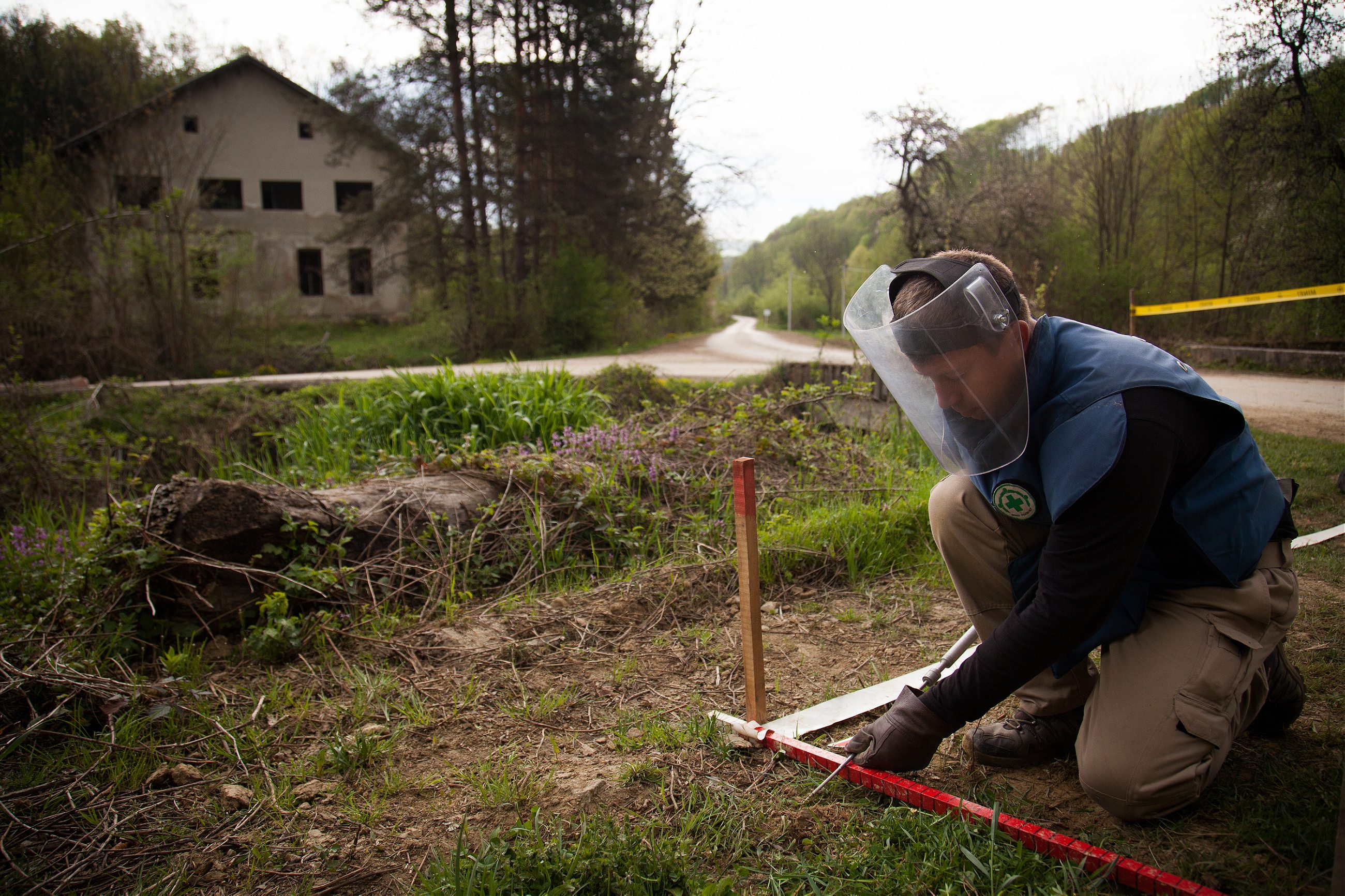
Bosnia and Herzegovina is the most mined country in Europe. In Skipovac Donji alone, nearly 25 acres must be cleared of land mines. An organization called the Norwegian People’s Aid started work in the area this April. “With our machines we can trigger many mines and destroy them,” says Amela Balic, NPA’s Operations Manager. “After that the dog squad comes in. Only when two of the dogs have examined the area and found nothing, the deminers come in.” But even with these precautions, accidents are frequent. One hundred and twenty deminers have been involved in accidents throughout the country in the last 20 years, and 47 of them died.
The soil in Skipovac Donji doesn’t make the clearance work easy. It’s full of shrapnel and spent cartridges that activate the mine detectors constantly. An error would be fatal, so each signal must be examined strictly according to protocol. Still, the Bosnia and Herzegovina Mine Action Center pledges the country will be free of mines by 2019. “I hope that my grandchildren visit me,” says Todor Jankovic. “But how can I make them visit me, if everywhere death is waiting?”
